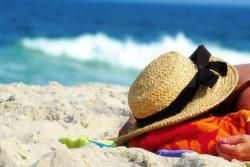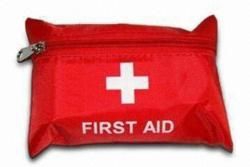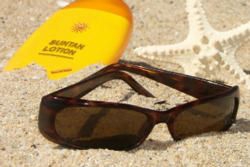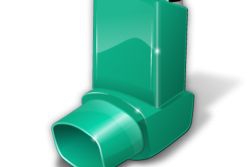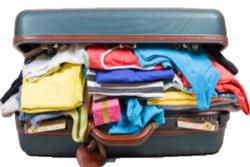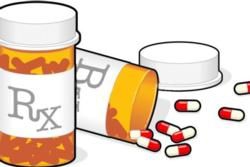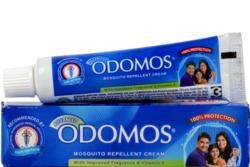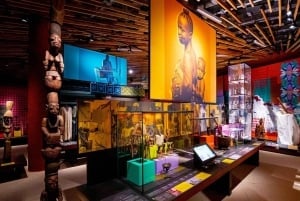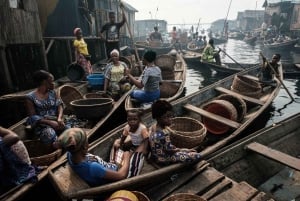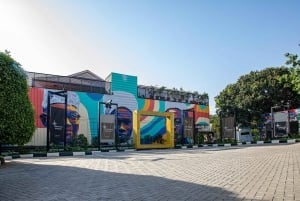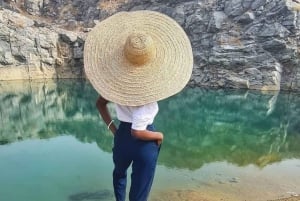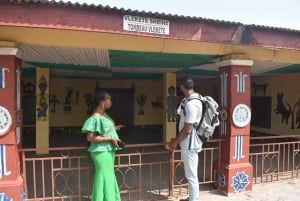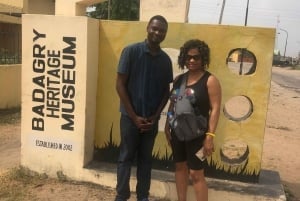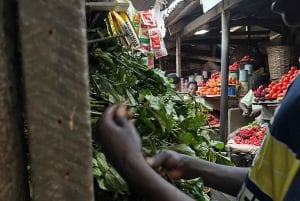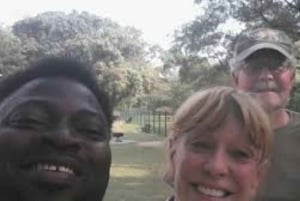Nigeria Survival Kit
Here is a guide to equipping yourself in advance with the basic tools and supplies needed for survival in Nigeria.
Sunscreen/Sunglasses
Nigeria's location in the tropics has gives it a tropical hot climate; therefore it is a good idea to engage in at least some means of sun protection, such as applying sunscreen and/or wearing sunglasses to avoid getting sunburned. Sunscreen is very useful in complementing other methods of reducing skin exposure to ultraviolet radiation (UV) and UV-protected sunglasses are a stylish way to protect yourself from the sun.
Hats
While at the beach, sunscreen may not provide complete protection from the sun. You may need a sun-protective hat to reduce the impact of ultraviolet radiation to the face, head and neck.
Recommended Medication
Having your recommended medication with you on your journey is very important. You will need a large supply of each recommended drug to last for the entire duration of your travel. Packing the right amount of medication can save you a lot of stress and most important of all could be life-saving in the event your drugs are not available locally. Although most local pharmacies may have them in stock, it will save you some money and time if you bring your own medicine, especially if they are a part of your daily routine.
Clothes
Our tropical climate calls for light clothing. T-shirts, pants, shorts, summer dresses and light jeans are ideal when moving around the city either for shopping, eating out in one of our
restaurants or just enjoying the city's boisterous
nightlife. It is important to note that Nigerians are fashionable; if you plan to do some partying, why not bring some of your reserved summer outfits and of course leave your jumpers and winter clothing behind.
First Aid
You may need to bring a first aid kit with you when away from home. It's best to carry along what you would normally purchase at the drugstore, especially if you have kids to look after or in the event of engaging in any activities. So you are prepared for any event, it is recommended you take items like antifungal cream, bandaids, antiseptic, antimalarials, usual prescription and non-prescription medications with you.
Here's a breakdown of what your first aid kit should contain:
-
Malaria treatment (only to be used if prescribed for you by a doctor)
-
Soluble aspirin or paracetamol
-
Chlorine dioxide (for sterilising water)
-
Antihistamine cream or tablets (in the event of insect bites)
-
Imodium (a standby for when diarrhoea occurs at a very awkward time)
-
Bandages and plasters
-
Tweezers
-
Alcohol-based hand rub
-
Sunblock
-
Condoms, femidoms
-
Mosquito repellent
-
Sanitary wear
Allergy drugs/Medication
If you have a food allergy, it is important to be careful of what you eat and make sure to enquire of the ingredients of any meal as a precautionary measure. Be sure to include any allergy medications in your first aid bag. Most importantly, sticking to your health routine will have you feeling a whole lot better on your visit.
Mosquito/Insect repellent
Mosquitoes and other insects in Nigeria are attracted to soft supple skin. As a tourist you should come prepared with insect repellent if you plan to sit around the pool or garden during the night. Alternatively, some light summer clothing could help protect you from insects and the sun. Better still, head over to one of our great
bars, where you can unwind, chill-out and relax without the mosquito bites.
Bureau de Change
Bureau de change (BDC) merchants are found in busy industrial areas and shopping malls in Nigeria and around the metropolitan city of Lagos. It is best to compare the rates between them and the rates online before embarking on a transaction. When carrying out a transaction for a large sum of money, you can try bargaining to get a better deal. On the first day you may just need a little cash on you to cover transportation costs and hotel fees and as Nigeria is a cash economy, having your VISA/Mastercard with you can help in an emergency situation, as they are accepted in Nigerian ATMs.
Visit only authorised and certified bureau de change merchants and if you are in Lagos contact Joshesther BDC on their hotlines 01- 2131031, 01-7624576, 0803-306-7274 which are open 24/7.
Now that you are fully eqipped with all the necessary tools for survival in Nigeria, pack your supplies and book your flight!


